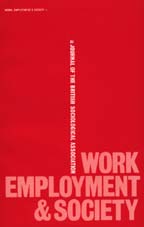Crossref Citations
This article has been cited by the following publications. This list is generated based on data provided by
Crossref.
Jahns, L
Baturin, A
and
Popkin, B M
2003.
Obesity, diet, and poverty: trends in the Russian transition to market economy.
European Journal of Clinical Nutrition,
Vol. 57,
Issue. 10,
p.
1295.
Tarkhnishvili, Levan
Voskanyan, Ana
Tholen, Jochen
and
Roberts, Ken
2005.
Waiting for the Market: Young Adults in Telavi and Vanadzor.
Journal of Youth Studies,
Vol. 8,
Issue. 3,
p.
313.
Ortar, Nathalie
2005.
Les multiples usages de la datcha des jardins collectifs.
Anthropologie et Sociétés,
Vol. 29,
Issue. 2,
p.
169.
Southworth, Caleb
2006.
The Dacha Debate: Household Agriculture and Labor Markets in Post‐Socialist Russia*.
Rural Sociology,
Vol. 71,
Issue. 3,
p.
451.
Smith, Adrian
and
Stenning, Alison
2006.
Beyond household economies: articulations and spaces of economic practice in postsocialism.
Progress in Human Geography,
Vol. 30,
Issue. 2,
p.
190.
Smith, Adrian
and
Rochovská, Alena
2007.
Domesticating neo-liberalism: Everyday lives and the geographies of post-socialist transformations.
Geoforum,
Vol. 38,
Issue. 6,
p.
1163.
Hirt, Sonia
2007.
Suburbanizing Sofia: Characteristics of Post-Socialist Peri-Urban Change.
Urban Geography,
Vol. 28,
Issue. 8,
p.
755.
RIES, NANCY
2009.
POTATO ONTOLOGY: Surviving Postsocialism in Russia.
Cultural Anthropology,
Vol. 24,
Issue. 2,
p.
181.
남영호
2009.
Some Myths on the Dacha: Meaning of Economy and Rest in Contemporary Russia.
MARXISM 21,
Vol. 6,
Issue. 4,
p.
221.
Sutherland, Lee-Ann
2010.
Differentiating farmers: opening the black box of private farming in post-Soviet states.
Agriculture and Human Values,
Vol. 27,
Issue. 3,
p.
259.
2010.
Domesticating Neo‐Liberalism.
p.
267.
Kanji, Shireen
2011.
Labor Force Participation, Regional Location, and Economic Well-Being of Single Mothers in Russia.
Journal of Family and Economic Issues,
Vol. 32,
Issue. 1,
p.
62.
Jehlička, Petr
and
Smith, Joe
2011.
An unsustainable state: Contrasting food practices and state policies in the Czech Republic.
Geoforum,
Vol. 42,
Issue. 3,
p.
362.
Williams, Colin C
and
Nadin, Sara
2012.
Work beyond employment: representations of informal economic activities.
Work, Employment and Society,
Vol. 26,
Issue. 2,
p.
1.
2012.
Iron Curtains.
p.
198.
Smith, Joe
and
Jehlička, Petr
2013.
Quiet sustainability: Fertile lessons from Europe's productive gardeners.
Journal of Rural Studies,
Vol. 32,
Issue. ,
p.
148.
L. Glover, Jane
2013.
Capital usage in family farm businesses.
Journal of Family Business Management,
Vol. 3,
Issue. 2,
p.
136.
Dépelteau, François
and
Hervouet, Ronan
2014.
Norbert Elias and Empirical Research.
p.
179.
Mamonova, Natalia
and
Sutherland, Lee-Ann
2015.
Rural gentrification in Russia: Renegotiating identity, alternative food production and social tensions in the countryside.
Journal of Rural Studies,
Vol. 42,
Issue. ,
p.
154.
Morris, Jeremy
2016.
Everyday Post-Socialism.
p.
3.




